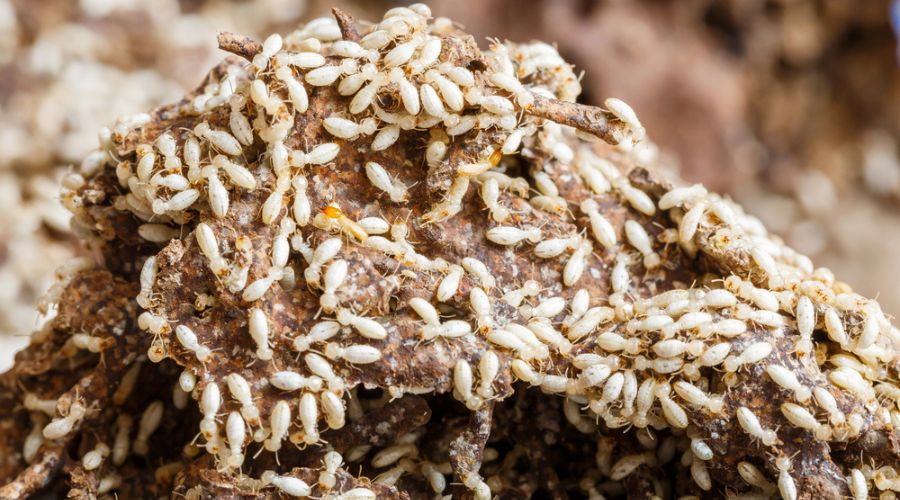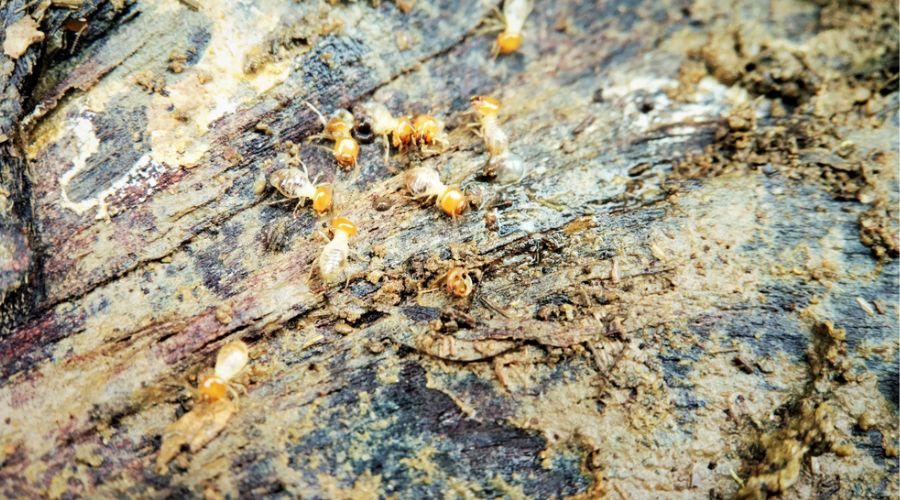Drywood termites may only cause about 10 percent of termite problems in the United States, but they still contribute to the nearly 600,000 American homes that deal with the wood-eating insects.
These termites can make their way into your home through small holes, crevices, doors, and windows, using their wings to fly in from outlying areas.
At Romney Pest Control, we understand how to keep drywood termites out of your Houston home, and it begins with prevention. Speak to our team of experts to learn more, and keep reading for additional help.
All About Drywood Termites
The only way to treat a termite problem is to correctly identify it. For Houston homeowners, it’s important to recognize the appearance, habitat, and reproduction habits of these types of termites to find the right solution.
Drywood termites can vary in size from a quarter-inch to three-eighths of an inch. They are most recognizable by their equal-sized, drooping wings. They have antennae, six legs, and dark bodies about half the size of their wings.
Drywood termites prefer warm and humid environments. They tend to attack dry wood that sits above ground, such as exposed wood on homes, furniture, or wooden structures like sheds. Because these termites don’t need a moist environment, like other species, they don’t require sitting water or soil.
These small termites can live in small or large colonies. Some are mature at just a few hundred members, while others grow to the thousands. Luckily for homeowners, their colonies develop slowly and can take 2 to 4 years to produce swarmers.
How to Keep Drywood Termites Out

Unlike other termites, drywood termites don’t require a constant water source or damp wood to survive. This is good news, as you don’t have to worry about sitting water or leaking. These three tips can help you keep drywood termites out.
Eliminate Access Points
If termites can’t get in, they can’t set up camp in your home. Keep termites out by sealing off any cracks, crevices, joints, and holes using caulk. Treat exterior wood by applying fresh coats of paint and install bug screens over foundation vents and attics.
Minimize Food Sources
Drywood termites may not need water, but they still need to eat wood. Keep all of the wood sources on your property tidy. Trim tree branches, shrubs, and bushes to avoid overgrowth. Maintain a gap between foliage and your home and remove firewood, lumber, and tree stumps.
Hire Professionals
When all else fails, talk to a professional. Expert termite exterminators take the guesswork out of solving the problem by offering their experience and knowledge.
How Do You Get Rid of Drywood Termites?
Plenty of home DIY methods can help you get rid of drywood termites. Common household products like boric acid, diatomaceous earth, and essential oils can deter and kill termites.
Other store-bought methods, such as cardboard traps, work well to fend off infestations.
These methods can be helpful, but they can’t replace professional help. Get rid of your termite problem once and for all with Romney Pest Control.
Professional Termite Control in Houston
Homeowners from across the country spend $5 billion per year on termite control and repair. Houston homeowners can lessen their spending by maintaining clean, protected homes and using Romney Pest Control.
With over 10 years of Texas experience, our team of highly trained and experienced professionals can save your home from costly damage. Want to get rid of termites today? Call us now!




